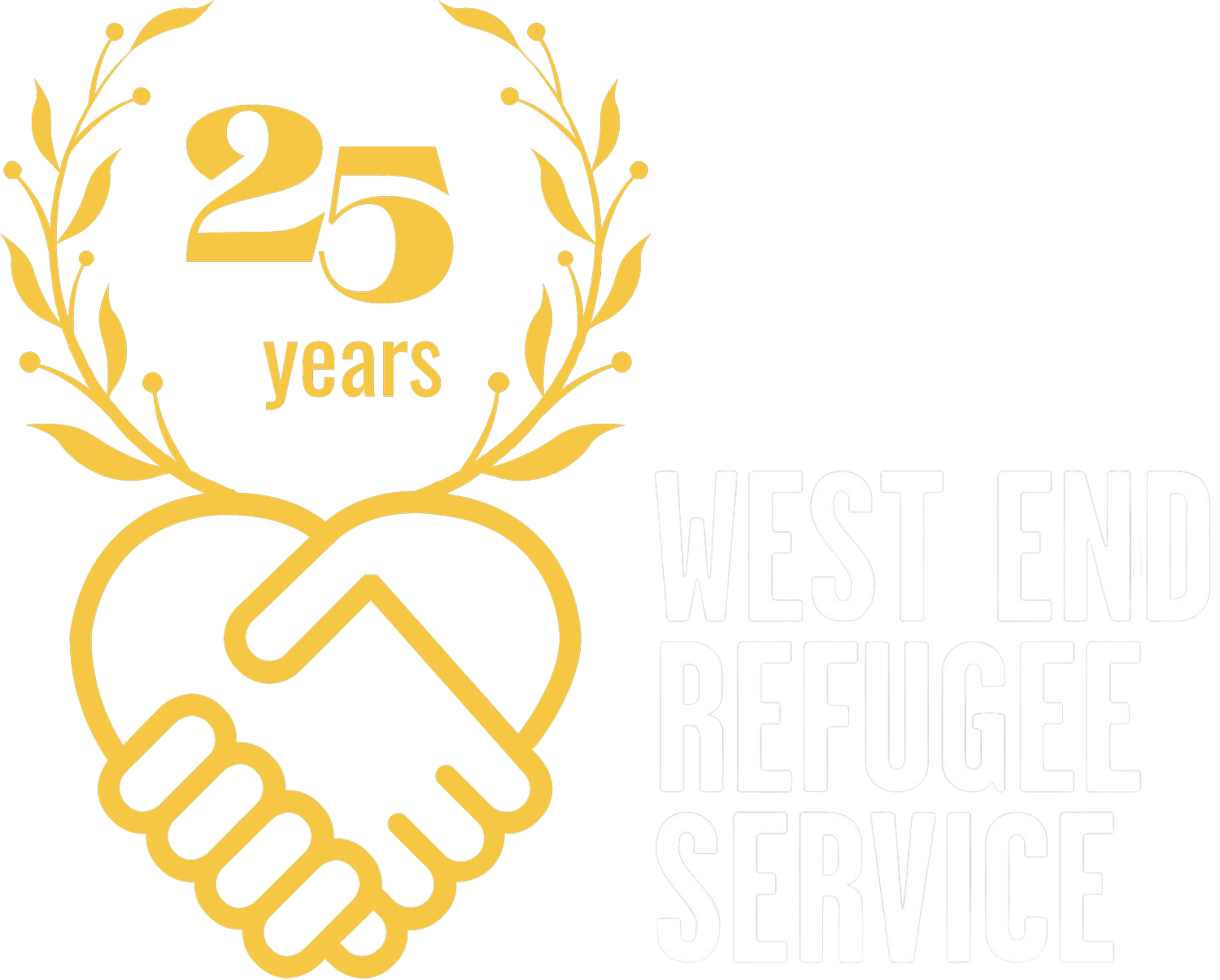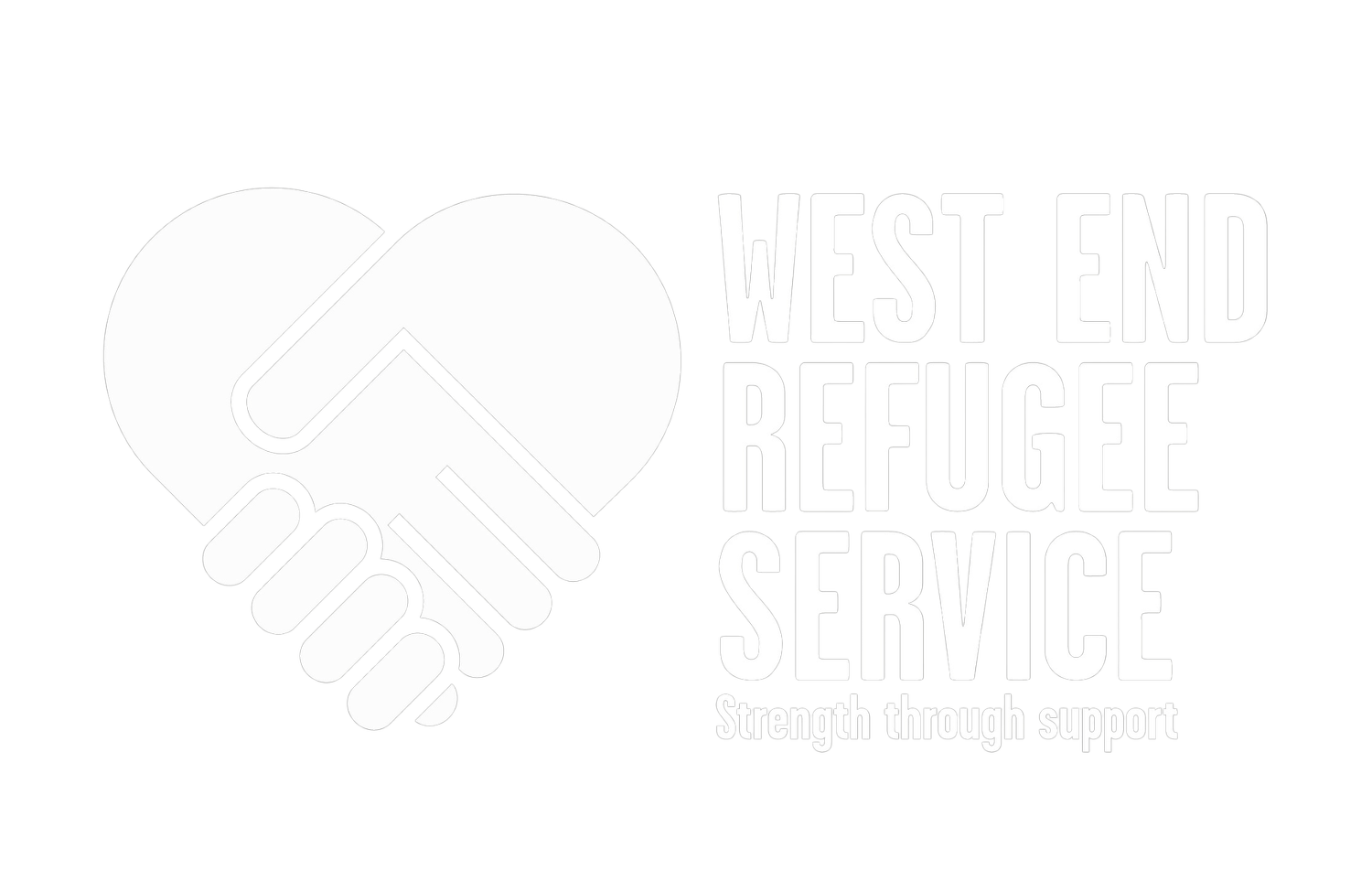OUR CAMPAIGNS
Our Campaigns Group consists of people with lived experience of the UK asylum system.
Our group members sit on the WERS Advisory Panel and work closely with the Chief Executive and the Board of Trustees to campaign on key issues important to our community.
The group meets regularly to discuss key focus areas, agree on actions and actively campaign on objectives aligned with WERS’ strategy and vision.
Since 2021, WERS' Campaigns Group has worked closely with Asylum Matters, a national campaigning organisation, focusing on challenging hostile environemnt introduced by the previous government. One of our significant wins was lobbying Newcastle City Council to pass a motion against anti-refugee laws in March 2023 (find out more).
Our vision for change.
- a Campaigns Group manifesto
We are advocating for an asylum system grounded in humanity and fairness.
The UK, as a leading European nation, should have a system that reflects its values - one that treats individuals with respect and dignity - and is clear, transparent and just.
With the change of government in July 2024, we see an opportunity to rebuild the asylum system from the ground up.
People seeking safety should no longer be driven into the hands of smugglers who profit from their desperation. Tackling these criminal networks is important, but it is only one piece of the puzzle. Lives are being lost, but this can be prevented by establishing safe routes.
We campaign for people seeking asylum to be given the right to work after six months if their claim has not been reviewed. For too long, people have been stuck in temporary accommodation, feeling helpless while their lives are put on hold. We are eager to contribute, to work, to regain our sense of purpose.
The events of late July and early August - marked by riots across the country - have shown us yet again the dangers of anti-human rhetoric that paints us, refugees as threats. The language used to describe us (people fleeing violence) dehumanised us and made us a target - an easy scapegoat for all socio-economic issues. That is simply neither true nor right - enough of using refugees in the political blame game.
The time for change is now and we are here to drive it.
We invite you to join us in our journey.
We are on the front lines, seeing firsthand the impact of a broken asylum system and it is our responsibility to challenge it.
Campaigning is in our DNA. As a grassroots organisation rooted in the North East, WERS brings a unique perspective - one shaped by the realities on the ground, where we witness daily the struggles and resilience of people navigating an unjust system.
In a world marked by global conflicts, the aftermath of Brexit and the Covid-19 pandemic and the pressing climate emergency, we need solutions that work. We cannot rely on quick fixes or reactive measures; we need a vision that is resilient, that evolves to meet new challenges, and that builds a sustainable future for those seeking safety.
For that change to happen, we must remain responsible and avoid moral superiority, which only deepens divisions and discourages dialogue. The far-right rhetoric, not only in the UK but globally, thrives within echo chambers, amplifying fear, division and misinformation. This poses a real danger - not just to those seeking asylum but to the values we all hold dear.
If we only argue that we are morally right, we risk losing the opportunity to create real change. Campaigning must go beyond principles - it must deliver practical, tangible solutions that make a difference.
We know the stories, we understand the struggles and we have the platform to drive change. But we can’t do it alone and this is our call to action: real, lasting change requires all of us - governments, communities and individuals - working together.
In solidarity
Andy Durma
Chief Executive
-

The UK’s asylum system has been systematically dismantled, leaving vulnerable people with no safe way to seek protection.
We need to create functioning safe routes for refugees
- because when the system works, dangerous crossings stop. -

People seeking asylum are left languishing in limbo, unable to work, and denied dignity, all while the system drags its feet.
Let people seeking asylum work after six months - because sitting idle in temporary accommodation is a waste of human potential and deeply inhumane.
-

The toxic language around people seeking asylum dehumanises them, turning victims into villains and stoking fear.
We must reset the narrative, challenging hate-filled rhetoric with truth and reminding people that refugees are human beings, not scapegoats.
Campaining makes a difference
Extending the Move On Period
From 9th December, newly granted refugees will see the grace period extended from 28 to 56 days. This change begins from the moment the Asylum Decision Letter is issued and provides a much-needed buffer during the transition to e-visas and increased decision-making efforts.
This interim measure, expected to remain in place until June 2025, offers newly recognised refugees more time to navigate the complexities of their next steps. It’s a step towards greater fairness and practicality, ensuring that people have adequate support as they begin to rebuild their lives with stability and dignity.
Ending the use of the Bibby Stockholm barge
The removal of the Bibby Stockholm barge is a victory for common sense, putting an end to an ill-advised scheme that dehumanised people seeking asylum.
The idea of housing vulnerable individuals on a barge always felt like a political stunt, designed more for headlines than genuine solutions. Its scrapping reaffirms the need for policies grounded in empathy and decency, reminding us that those fleeing conflict and persecution deserve to be treated with respect, not as logistical afterthoughts.
Scrapping the Rwanda Plan
The recent scrapping of the Rwanda Plan by the new Labour government is a profound moment for those of us who believe in fairness and humanity in asylum policy.
After months of relentless advocacy, this reversal reflects a broader societal consensus that people seeking refuge should not be treated as problems to be outsourced. It is a clear example that when civil society stands together - when individuals, charities and communities persist in challenging injustice - real, tangible change is possible, restoring hope for thousands of vulnerable people.
Click here to see our previous statements on the Rwanda Plan.





